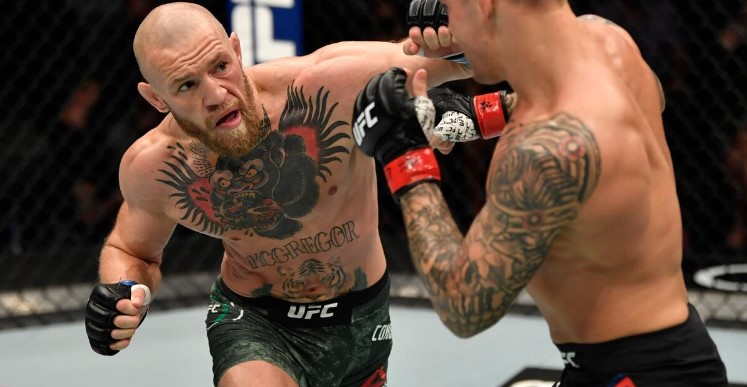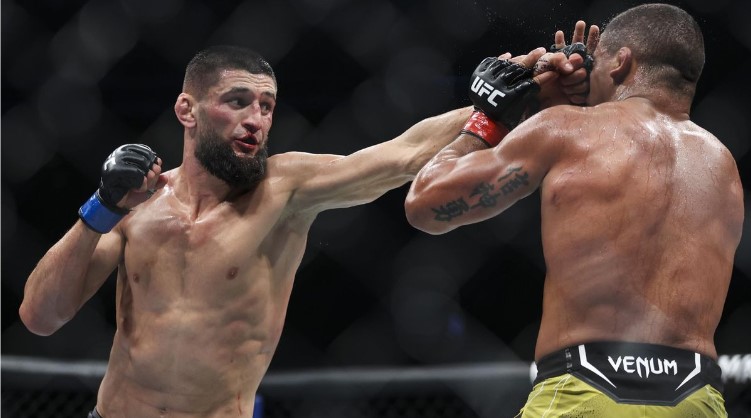Mixed Martial Arts (MMA) and the Ultimate Fighting Championship (UFC) have undergone a remarkable journey from their humble beginnings to becoming global phenomena. What once started as an underground spectacle has now risen to the forefront of mainstream sports and entertainment, captivating audiences worldwide with its electrifying blend of athleticism, skill, and raw intensity. In this article, we delve into the intricacies of this remarkable ascent, exploring the factors driving the soaring popularity of MMA and UFC.
At its core, MMA represents a convergence of various combat disciplines, where athletes showcase a diverse array of techniques ranging from striking to grappling, creating a dynamic and unpredictable spectacle. UFC, the premier organization in MMA, has played a pivotal role in elevating the sport’s profile, transforming it from a fringe curiosity into a multi-billion-dollar industry with a global fanbase.

This article aims to dissect the evolution of MMA and UFC, examining the pivotal moments and key figures that have shaped its trajectory. We will delve into the cultural impact of MMA, dissect the factors fueling its popularity, and analyze its global expansion and influence. Moreover, we will explore the economic boom and business opportunities spawned by the sport, while also addressing the challenges and controversies it faces.
As we embark on this exploration, it becomes evident that MMA and UFC represent more than just a sporting spectacle; they embody a cultural phenomenon that resonates with millions around the world. From the adrenaline-fueled action inside the Octagon to the stories of triumph and resilience outside of it, MMA and UFC continue to captivate and inspire audiences, leaving an indelible mark on the world of sports and popular culture.
Evolution of MMA and UFC
From its gritty origins in the underground fight scene to its current status as a global sports juggernaut, the evolution of Mixed Martial Arts (MMA) and the Ultimate Fighting Championship (UFC) is a tale of perseverance, innovation, and mainstream acceptance.
In the early days, MMA was a no-holds-barred spectacle, pitting practitioners of various martial arts disciplines against each other in a quest for supremacy. The UFC, founded in 1993, served as a platform to showcase these confrontations, albeit in a controversial and unregulated environment. However, as the sport evolved, so did its rules and regulations, leading to a more structured and safer competitive landscape.
The turning point for the UFC came in the early 2000s when new ownership injected fresh capital and implemented strategic changes to rebrand the organization as a legitimate sporting enterprise. With a focus on talent acquisition, marketing, and global expansion, the UFC began its ascent from the fringes of the sports world to the mainstream spotlight.
Furthermore, the emergence of online betting platforms has provided Indian fans with an additional layer of excitement and engagement. With the ability to bet on UFC fights in India, enthusiasts can now immerse themselves in the action like never before, adding an extra dimension of thrill to every match-up.
In essence, the evolution of MMA and the UFC represents a triumph of determination and innovation, showcasing the power of sport to transcend boundaries and captivate audiences around the globe. As the journey continues, one thing remains certain: the legacy of MMA and the UFC will endure, inspiring generations of athletes and fans alike.
Factors Driving the Popularity of MMA and UFC
The meteoric rise of Mixed Martial Arts (MMA) and the Ultimate Fighting Championship (UFC) can be attributed to a confluence of factors that have propelled the sport from obscurity to mainstream prominence. These factors, ranging from the sport’s entertaining nature to its accessibility through various media platforms, have played a pivotal role in captivating audiences worldwide.
One of the primary drivers behind the popularity of MMA and the UFC is the sport’s inherently entertaining and dynamic nature. Unlike traditional combat sports, which may focus on a single discipline, MMA encompasses a diverse range of fighting styles, including striking, grappling, and submissions. This diversity leads to a fast-paced and unpredictable spectacle, where anything can happen at any moment, keeping fans on the edge of their seats.
Moreover, the rise of charismatic and skilled athletes has significantly contributed to the sport’s appeal. From trailblazers like Conor McGregor to dominant champions like Khabib Nurmagomedov, these larger-than-life personalities have captured the imagination of fans with their exceptional talent, charisma, and compelling narratives. Their rivalries and achievements serve as compelling storylines that draw viewers into the sport, transcending traditional boundaries and attracting new audiences.
Emergence of platforms, such as BC.Game online platform, has provided fans with new avenues for engagement and interaction. Through these platforms, fans can participate in virtual betting, predictions, and other interactive experiences that enhance their enjoyment of MMA and the UFC. BC.Game’s online platform, for example, offers a unique opportunity for fans to immerse themselves in the excitement of MMA events while competing against fellow enthusiasts and potentially winning rewards.

In summary, the popularity of MMA and the UFC can be attributed to a combination of factors, including the sport’s entertaining nature, the rise of charismatic athletes, accessibility through media platforms, and the emergence of innovative online platforms like BC.Game. As the sport continues to evolve and capture the imagination of fans worldwide, these factors will undoubtedly play a crucial role in shaping its future trajectory.
Global Expansion and Influence of MMA and UFC
The influence of Mixed Martial Arts (MMA) and the Ultimate Fighting Championship (UFC) transcends borders, cultures, and continents, marking a paradigm shift in the world of combat sports. The global expansion of MMA and the UFC has not only broadened the sport’s reach but also reshaped the landscape of athletic competition on a global scale.
Central to the UFC’s global expansion strategy has been its concerted efforts to establish a presence in key markets around the world. Through strategic partnerships, international events, and talent scouting initiatives, the UFC has successfully penetrated diverse markets, from North America and Europe to Asia, Africa, and beyond. This global footprint has enabled the UFC to cultivate a truly international fanbase, united by a shared passion for the sport.
Moreover, the UFC’s presence in new markets has catalyzed the growth of MMA at the grassroots level, inspiring a new generation of athletes and enthusiasts to embrace the sport. In countries where combat sports were once niche pursuits, MMA has emerged as a mainstream phenomenon, capturing the imagination of audiences and generating widespread interest.
The cultural impact of MMA’s global expansion cannot be overstated, as the sport has become a vehicle for cultural exchange and mutual understanding. Through the universal language of competition, MMA has fostered connections between people from diverse backgrounds, transcending linguistic, cultural, and geopolitical barriers.
Furthermore, the global expansion of MMA and the UFC has provided new opportunities for engagement and participation. Platforms like BC.Game, a leading crypto casino, have leveraged the growing popularity of MMA to offer unique and immersive experiences for fans. Through BC.Game’s platform, users can participate in virtual betting, prediction games, and interactive experiences that add an extra layer of excitement to MMA events.A deep dive into BC.Game crypto casino reveals a vibrant community of MMA enthusiasts who come together to engage with the sport in innovative and rewarding ways.
Economic Boom and Business Opportunities in MMA and UFC
The rise of Mixed Martial Arts (MMA) and the Ultimate Fighting Championship (UFC) has not only transformed the sports landscape but also catalyzed an economic boom, creating a plethora of business opportunities across various sectors.
At the forefront of this economic surge is the UFC itself, which has evolved from a scrappy startup to a multi-billion-dollar enterprise. Through lucrative broadcasting deals, sponsorship agreements, and pay-per-view revenues, the UFC has established itself as a major player in the global sports market. This financial success has not only benefited the organization but has also trickled down to the athletes, who now command higher salaries and enjoy greater financial security than ever before.
Moreover, the popularity of MMA and the UFC has spawned a thriving ecosystem of ancillary industries, ranging from apparel and merchandise to fitness and training facilities. Brands like Reebok and Nike have capitalized on the sport’s growing appeal by releasing specialized MMA gear and apparel, while fitness chains like UFC Gym offer training programs inspired by the training regimens of professional fighters.
Furthermore, the global reach of MMA and the UFC has opened up new markets and revenue streams for businesses looking to capitalize on the sport’s popularity. From international licensing deals to sponsorship opportunities in emerging markets, companies are increasingly looking to align themselves with MMA and the UFC as a means of reaching new audiences and expanding their brand presence.
One notable example of this is the burgeoning market for online betting and gaming platforms, which have experienced exponential growth alongside the rise of MMA. Platforms like BC.Game, a leading crypto casino, have leveraged the popularity of MMA to offer unique betting experiences and interactive games for fans. By tapping into the excitement surrounding MMA events, these platforms have created new opportunities for engagement and monetization within the sport.


Leave a Reply